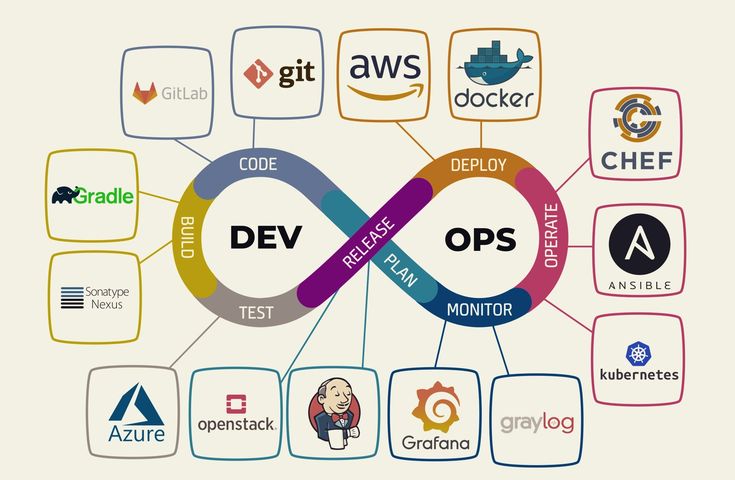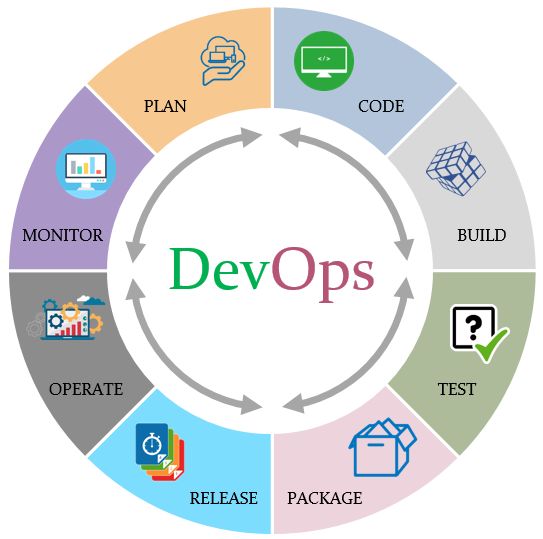🚀 Unlocking the Power of DevOps: How Automation and Scaling Drive Digital Success
 Saksham Kamble
Saksham Kamble
🚀Day 1 Task : What is DevOps?
DevOps is a combination of "Development" and "Operations," aimed at bridging the gap between software development (Dev) and IT operations (Ops). It’s a culture, a set of practices, and tools that help organizations deliver applications faster, improve collaboration between teams, and ensure high-quality software delivery.
In the world of IT, DevOps focuses on automation, collaboration, and integration between different teams to deliver products efficiently, which is especially crucial as businesses move to the cloud.
🔧 What is Automation, Scaling, and Infrastructure?
DevOps relies heavily on three core elements: automation, scaling, and infrastructure. Let's break them down:
Automation: ⚙️ Automation in DevOps is about minimizing manual tasks. This could be automating code deployment, testing, or monitoring systems. For example, instead of manually testing software for bugs, automation tools can run tests automatically after each code change, saving time and reducing human errors.
Scaling: 📈 Scaling refers to a system's ability to grow or shrink in response to demand. In DevOps, scaling often happens automatically. Think of a website receiving tons of traffic during a sale—DevOps practices allow the infrastructure to scale up (more servers) when needed and scale down when traffic decreases to save costs.
Infrastructure: 🏗️ Infrastructure in DevOps refers to the underlying systems that run applications—servers, databases, and network resources. DevOps teams use "Infrastructure as Code" (IaC) to manage and provision this infrastructure programmatically, making it faster and more reliable to deploy environments.
💡 Why is DevOps Important?
DevOps isn’t just a trend; it’s a fundamental shift in how organizations build and deliver software. Here's why DevOps is crucial, even if you're not an IT expert:
Faster Delivery: ⏩ DevOps shortens the software development cycle. By automating processes and enabling better collaboration, teams can release new features and bug fixes more quickly.
Improved Collaboration: 👨💻👩💻 Traditionally, developers and operations teams worked in silos, which slowed down progress. DevOps promotes cross-functional teams that work together, ensuring that software is developed and deployed smoothly.
Increased Reliability: ✅ With automated testing, continuous integration, and continuous delivery (CI/CD) pipelines, DevOps ensures that software is tested thoroughly before release. This reduces the chances of bugs or errors reaching the end user.
Cost Efficiency: 💰 Automation and scaling help companies use resources more efficiently. For instance, auto-scaling servers up and down can prevent overpaying for unused resources during low traffic times.

🌍 Real-Life Example: How DevOps Impacts Your Everyday Life
Let’s imagine you're using a popular e-commerce platform during a holiday sale. Behind the scenes, DevOps practices are keeping everything running smoothly:
Automation: The code behind the website is updated and tested automatically, ensuring no downtime during peak hours.
Scaling: When millions of users flood the site, additional servers automatically come online to handle the load.
Infrastructure: The platform’s backend is hosted on cloud servers, managed through code. This ensures that the infrastructure can be updated or fixed in minutes, without causing disruptions.
All of these processes happen without you even noticing! You just enjoy a seamless shopping experience.
🎯 Why DevOps is Important for Businesses
Faster Innovation: Companies that adopt DevOps release software updates more frequently, allowing them to respond quickly to market demands.
Better Quality Software: With constant testing and automation, DevOps ensures high-quality releases that are less prone to bugs.
Enhanced Customer Satisfaction: By delivering updates and features faster, businesses can meet customer needs more effectively.
Subscribe to my newsletter
Read articles from Saksham Kamble directly inside your inbox. Subscribe to the newsletter, and don't miss out.
Written by
